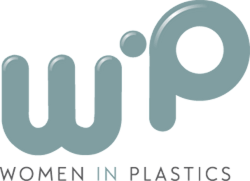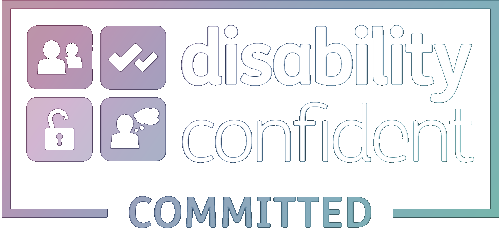‘Women in Plastics’ provide a platform for females in the plastics industry that are doing great work in every type of capacity. Recently, Plastribution Commercial Director Katherine White took part in an interview for their publication which they’ve kindly allowed us to share.
If you’d like to find out more about Women in Plastics, please visit their website.
Katherine White, Commercial Director—Thermoplastics at Plastribution moved back home after graduating from university, planning to stay short term but little did she know the short- term role at Plastribution would turn into the beginning of a successful career in the plastics industry, leading to her becoming the first woman on the company board.
Grace Nolan talked with her to find out more about her role as a woman in plastics.
Q: How did you fall into the plastics industry or was it always your intention?
I completely fell into it (as most people seem to). I moved back home after graduating from Leeds University (where I studied Economics) and planned to work and pay off my debts before heading off to London to join my friends. I got a job at Plastribution in Internal Sales thinking I may as well get some useful job experience, and was surprised to learn about the size and complexity of the UK polymer industry. I knew nothing about plastics, I didn’t even realise there were different types, but was fascinated to learn about the properties and performance of different materials. I started in the Engineering Polymers department and was particularly impressed with Acetal; I took it upon myself to learn about the different grades and their technical properties.
Q: Do you have a polymer-based qualification? If so, could you tell me how you received it?
I was very lucky in that, at the time of joining Plastribution, we had Burton Technical College on our doorstep offering HNCs in Polymer Technology. I had a very supportive boss, Mike Boswell our current MD, who encouraged me and allowed me to study on day release. I then transferred to Coventry University to study for a BSc in Polymer Science. Unfortunately, these courses are not so readily available now which is a real problem for our industry.
Q: As a Commercial Director what does a typical day consist of?
There’s lots of variety in my role – I work closely with the Product Group, Sales, Marketing, Operations and Finance teams within our business. I also have a lot of contact with our supplier partners which I really enjoy.
Q: What is your opinion on gender roles in the plastics industry?
I think the industry has changed a lot in the past 10 years which really needed to happen. When I first joined the industry, it was very male dominated and some of the attitudes were very outdated. It didn’t bother me too much – it made me more determined in a way – and I was very fortunate that I had the support of my boss. I certainly don’t think the industry was making itself attractive as a progressive place of work for talented young women. As our industry desperately needs new people to join, we need to ensure we are presenting ourselves in a positive light and creating exciting opportunities for talented and capable people, male or female.
Q: Have you ever been in a situation at work where you have felt your gender has affected your progress?
I have felt in meetings with certain customers and suppliers that as a woman, particularly a young woman, your views are not always listened to. I particularly remember visits to customers with male colleagues when I was completely ignored despite asking questions and contributing to discussions. But I am very fortunate in that Plastribution is focused on performance in role and attitude rather than gender. I must also acknowledge that sometimes being one of a few females in a meeting or at an event can make it easier for people to remember you, so it can be a benefit too.
Q: What is the biggest challenge you have faced in your career?
I found it tough trying to juggle family commitments and a demanding job, particularly when my children were very young. Although I recognise that I made my own choices.
Otherwise the most challenging aspect is always to do with managing people.
Q: What has been your biggest accomplishment in your career?
I was really proud to be appointed to our board in 2011, and especially proud to be our first female board member.
Q: What advice would you give to women entering a male dominated environment?
I would say don’t be deterred. Being one of few women can create as many opportunities as challenges. Be confident in being yourself – the industry desperately needs diversity in skills, attitudes and opinions for its long-term success. A female mentor or support network can be a big help.
Q: How important do you feel female role models are to the younger generation and did you have one?
I think female role models are absolutely critical. And I’ve been very lucky to have worked closely with some really inspirational women in the industry. Our European supply partners have many strong, successful women in key roles. The UK plastics industry still has some catching up to do.
Of particular note is Terry Harris from Carmel Olefins who has been a really strong role model to me throughout my career. She taught me that it’s absolutely fine to be myself – I don’t need to know everything or try to be all things to all people. In the early part of my career I believed that to be taken seriously and successful I should act in the same way as the men that I worked with. I now realise that I don’t need to be the same, that it’s fine to have a different approach. And you shouldn’t be afraid to show what are typically identified as more female characteristics in the work place. What can sometimes be perceived as weaknesses by others are often signs of strength.
Q: Do you feel there is enough information/opportunities for the next generation to be encouraged to have a career in the plastics industry? If no-what more do you feel could be done?
I am very worried about how we can attract the next generation to the plastics industry, particularly when there’s so much negativity around our industry at present. I think all companies involved in the industry need to do their part in dealing with the misinformation that is so commonplace and to portray a balanced approach. I think education is absolutely critical in ensuring that youngsters appreciate the values that plastics bring to society. Engaging with local schools and the wider community is therefore essential for the future of our industry. This is something that Plastribution is actively involved in through its support of the BPF Polymer Ambassadors’ scheme and the STEM Ambassador scheme.



